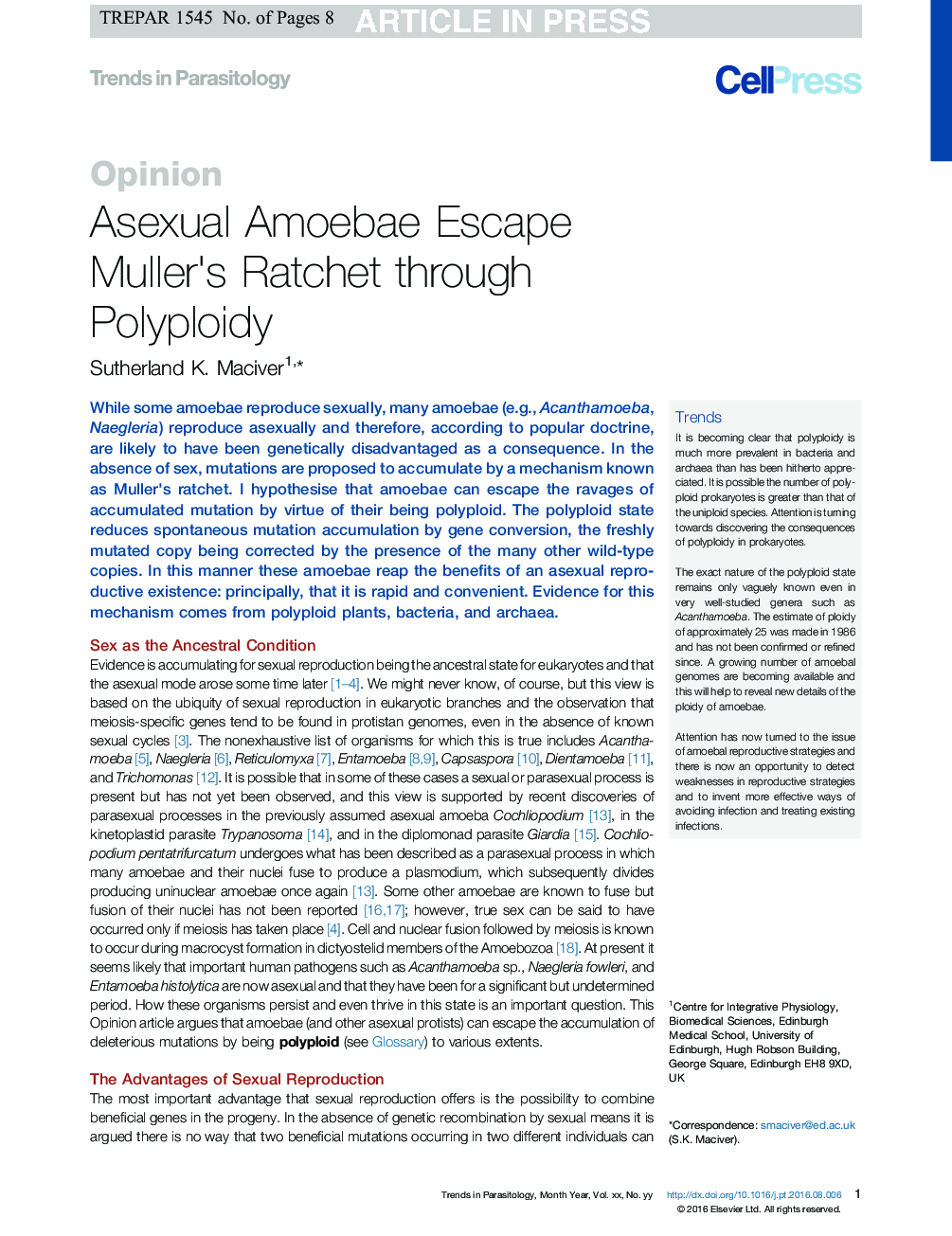| Article ID | Journal | Published Year | Pages | File Type |
|---|---|---|---|---|
| 5674775 | Trends in Parasitology | 2016 | 8 Pages |
Abstract
While some amoebae reproduce sexually, many amoebae (e.g., Acanthamoeba, Naegleria) reproduce asexually and therefore, according to popular doctrine, are likely to have been genetically disadvantaged as a consequence. In the absence of sex, mutations are proposed to accumulate by a mechanism known as Muller's ratchet. I hypothesise that amoebae can escape the ravages of accumulated mutation by virtue of their being polyploid. The polyploid state reduces spontaneous mutation accumulation by gene conversion, the freshly mutated copy being corrected by the presence of the many other wild-type copies. In this manner these amoebae reap the benefits of an asexual reproductive existence: principally, that it is rapid and convenient. Evidence for this mechanism comes from polyploid plants, bacteria, and archaea.
Related Topics
Life Sciences
Immunology and Microbiology
Parasitology
Authors
Sutherland K. Maciver,
